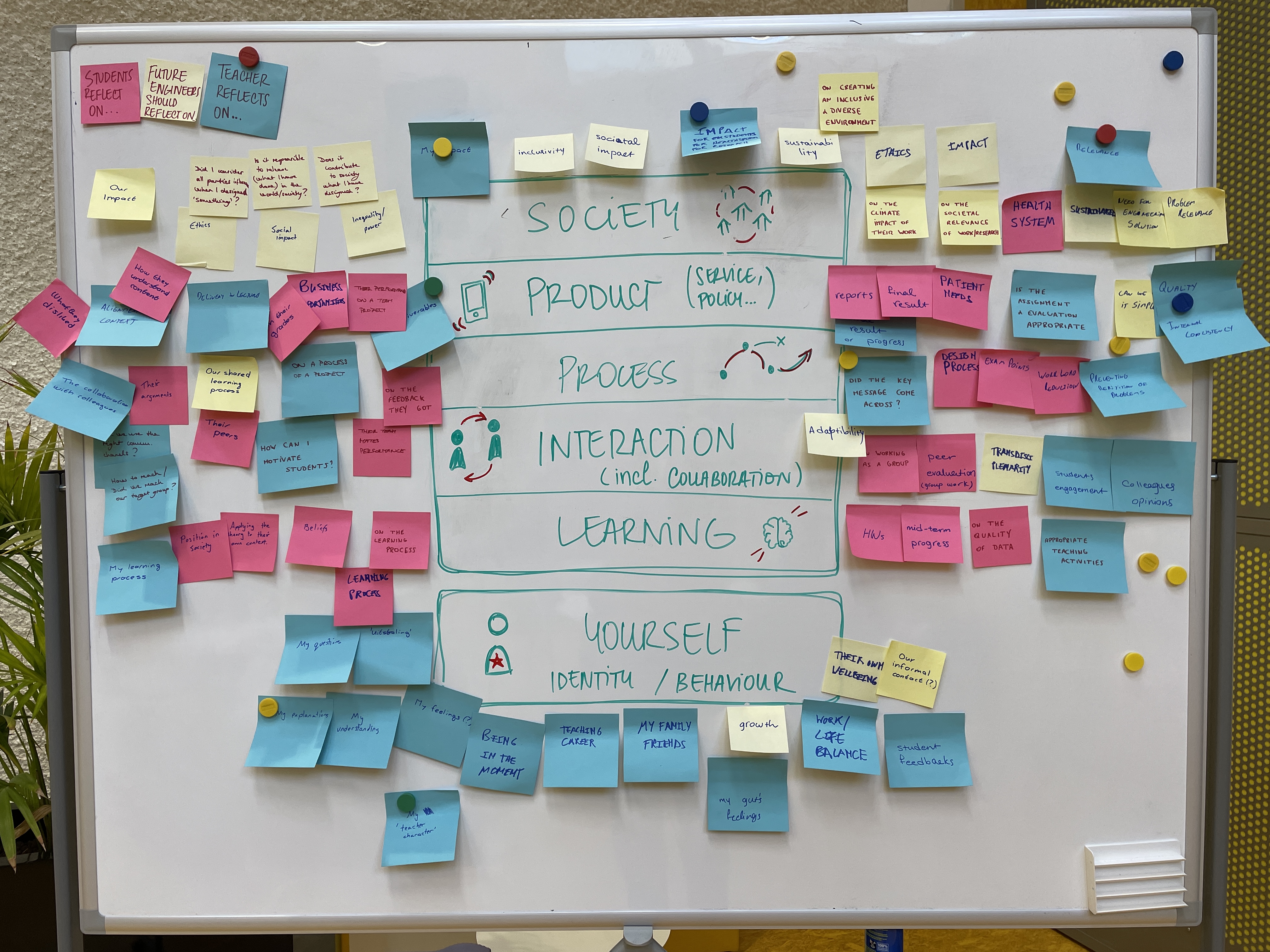Reflective Domain Inventarisation
What is it?
The Reflective Domain Inventarisation workshop focuses on understanding the role of reflection in engineering education. To do that, we use the six Domains identified to be relevant for reflection: Learning, Interactions, Process, Product, Society, and Yourself (P Hermsen, R Rooij, G Rijnbeek, T Adrichem, 2023). Participants engage in activities such as graphing their reflections and discussing patterns and gaps in for example, in what domains reflection is (not yet) represented in everyday practice and how would they describe the reflective behavior of students, teachers and other stakeholders.
How does it work?
In a graph in which the reflection domains are indicated, participants place large, color-coded dots or post-with, where they write the following: 1. What do they reflect on, and 2. What do students (should) reflect on, and 3. What future-proof generations of engineers should be reflective about.
Afterwards, when this overview is visible, in a plenary discussion or in groups, participants seek patterns and discuss what the value of reflection within the different domains is for engineers and their future generations. Such a discussion gives them the space to share and inspire others with their own experiences in their context and what they are currently doing to steer towards a more reflective education.
Bringing reflective mentoring to the classroom
In teaching, reflection is an important topic, but it can easily be misunderstood or underestimated due to its context-specific nature. This workshop shows educators the broadness and complexity of reflection, which can be a first step in learning how to be more reflective themselves and how to teach students reflective qualities.
Direct implementation (for educators and support staff)
- Get in touch for a guided workshop with your team, with a presentation on background theory and room for discussion. Hopefully, this workshop will help you and your fellows to reach a better understanding of your perception of reflection and identify and apply the different reflective domains in your current educational practice.
Implentation for other groups?
- The different reflection domains can help diverse (educational) teams to evaluate how reflection is present in their specific context, what are possible reflective ‘gaps’ and what is their shared ambition towards reflection.
Experiences
" I let students reflect, but I don't take time to reflect myself”
“Future generations of engineers should reflect in Society, Ethics, but we currently do not have those strongly implemented in the courses we teach...There is a need to do that more”
“A lot relies on Authenticity, Who and Where am I? How do I do things? And how does that fit in the world?”
“It is also interesting to see emerge in the discussion(s) that outward reflection (referring to the domains Learning, Interactions, Process, Product, Society) and inward reflection (domain, Yourself) are indeed interrelated"
Note.
Sources: White Paper 100 Days of... Reflection: Reflection in Engineering Education, P Hermsen, R Rooij, G Rijnbeek, T Adrichem, 2023. Click here.
